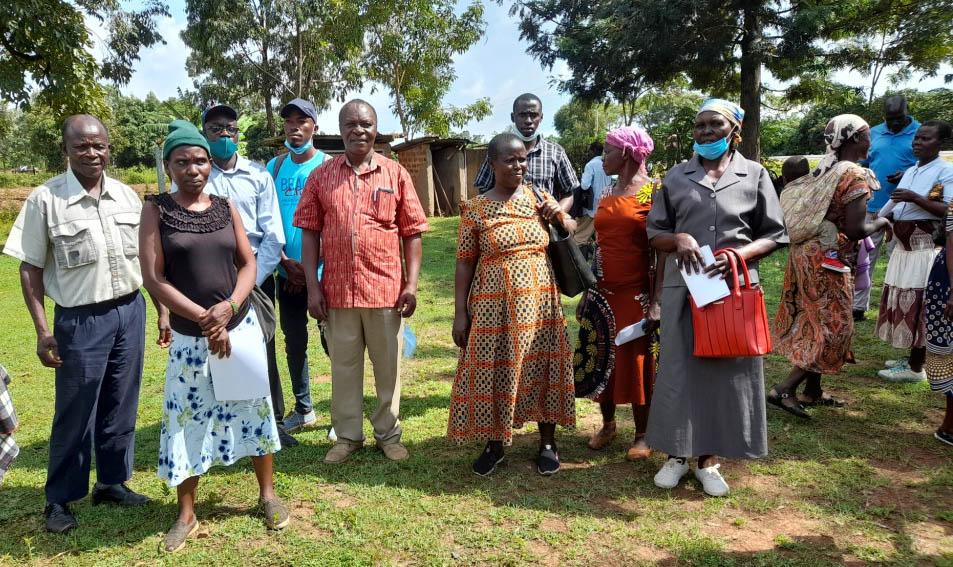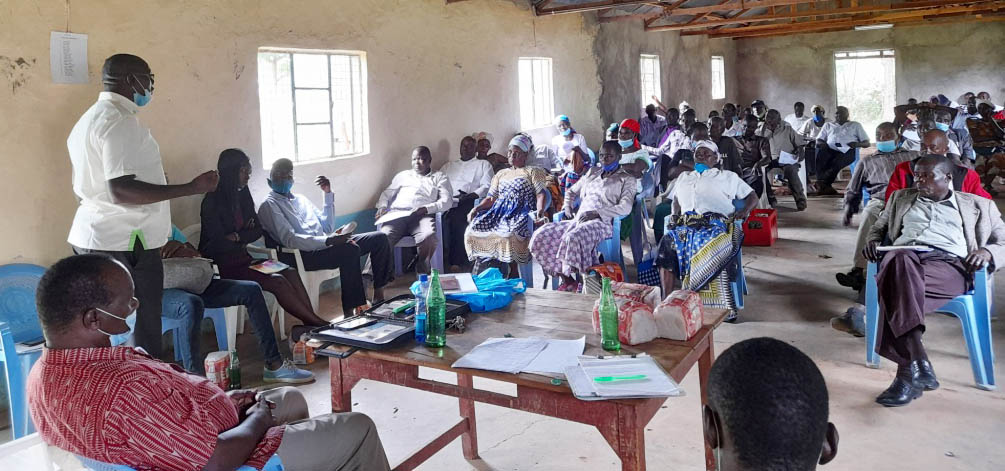Crop Trust Sorghum Project Updates January 2021 Coping with climate change effects on sorghum productivity in western Kenya
Climate change threatens to significantly increase the number of people at risk of food insecurity all over the world. It has led to increase in the frequency and intensity of natural disasters and extreme weather events, such as droughts, floods, rising sea levels; salinization of water supplies and agricultural lands; changes in rainfall patterns; and decline in water quality and availability in arid and semi-arid regions, with expected reduction in agricultural productivity, especially in sub-Saharan Africa. The project held a stakeholder analysis workshop in Migori County in January 2021 in order to obtain shared understanding on the effects of climate change on sorghum production in western Kenya and discuss some coping strategies for small holder farmers in this region. From the discussions with farmers it was evident that majority of farmers have understood the concept of climate change and have experienced its effects in one way or another. Some of the evidences they mentioned within their locality included; change in rainfall amount and pattern. Erratic rainfall has led to disruption of their two cropping seasons thus making it difficult for optimum sorghum production in the two seasons. It has also led to late planting making the sorghum crop to be more susceptible to attacks by pests like shoofly and Fall armyworm which cause severe losses to the crop. Extreme weather events like heavy rainfall, hailstorm and flooding physically damage their crops. Key mitigation strategies included; (a) planting of forests and reducing destruction of natural forests for carbon capture and storage. Natural forests remain the most effective system for carbon capture and storage on the planet, and could help achieve 37% of the global climate target (b) reducing energy consumption by making homes more energy efficient to reduce the release of CO2 (c) Soil moisture conservation (d) Embracing integrated systems approaches in farming (d) using climate smart crop varieties. Breeding for climate smart varieties emerged as one of the sustainable approaches in combating effects of climate change in sorghum. Rongo University is currently in advanced stages in using participatory approaches to evaluate sorghum pre-breeding material with farmers in Western Kenya and breeding for adaptation to drought using sorghum wild relatives (CWR). Initial results from these trials have shown the existence of untapped great genetic potential from the CWR lines in terms of earliness, panicle characteristics and good adaptation. Many farmers have expressed interest in other traits they found useful in these materials such as high tillering ability, good sorghum taste, lodging resistance among others. We are working towards making available these materials to farmers for improved sorghum productivity and adaptation to climate change
All materials and related data will be made available to the global community. This work was undertaken as part of the initiative “Adapting Agriculture to Climate Change: Collecting, Protecting and Preparing Crop Wild Relatives” which is supported by the Government of Norway. The project is managed by the Global Crop Diversity Trust with the Millennium Seed Bank of the Royal Botanic Gardens, Kew UK and implemented in partnership with national and international genebanks and plant breeding institutes around the world. For further information, please go to the project website: http://www.cwrdiversity.org/


Institute and Country: Rongo University, Kenya
Coordinator in Kenya: Dr. Evans Ouma
Address: P.O.BOX 103-40404, Tel: +254723340421
Email: evans.ouma13@gmail.com/eouma@rongovarsity.ac.ke
Crop Trust Coordinator : Dr. Benjamin Kilian